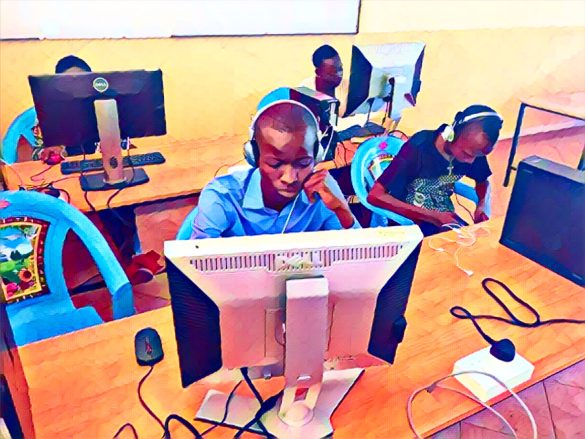Key Points
- Digital literacy is key to Zimbabwe’s socio-economic transformation.
- Tech hubs are creating new job opportunities and empowering youth.
- Overcoming infrastructure gaps will accelerate Zimbabwe’s digital economy.
Zimbabwe, akin to several underdeveloped countries, is maneuvering through the intricacies of a digital revolution. Despite worldwide technical improvements resulting in a pronounced digital divide, Zimbabwe’s government, commercial sector, and civil society have made efforts to mitigate this disparity.
The significance of digital literacy and technological empowerment in Zimbabwe’s advancement
In Zimbabwe, it has become an essential element of national development, especially as technology increasingly influences global economies.
Zimbabwe’s government has understood the value of these skills and has undertaken many measures, such as incorporating ICT into the national curriculum and striving for widespread digital inclusion. Nonetheless, it is evident that considerable additional effort is required to completely leverage technology for socio-economic transformation.
Furthermore, groups like Techzim and Bithub are leading the way in Zimbabwe’s tech innovation area. These private sector projects offer opportunities for youth to acquire practical digital skills via coding classes, innovation hubs, and mentorship programs.
The emergence of tech centres has also contributed to job creation, with entrepreneurs thriving in industries including mobile technology, e-commerce, and software development.
Challenges to digital literacy and tech empowerment in Zimbabwe
According to biztech, despite the multiple digital literacy initiatives, some issues remain limit the general empowerment of Zimbabweans. Chief among these is the digital divide between urban and rural communities. Although internet connectivity is prevalent in urban areas like Harare and Bulawayo, rural regions have considerable obstacles, including inconsistent electrical supply, inadequate and elevated mobile data expenses.
A report by The Zimbabwean indicates that the average cost of internet access in Zimbabwe is excessively high for most of the people. This financial obstacle restricts low-income individuals and families from engaging in digital education or online employment prospects.
Cultural barriers also constitute a substantial challenge, especially when it comes to gender inclusion. In Zimbabwe, as in several regions of sub-Saharan Africa, women and girls frequently lack representation in technology-related sectors.
Initiatives such as Techwomen and GirlCode aim to rectify these inequities by providing technology training programs tailored for young women and girls, motivating them to pursue professions in the tech industry.
Progressing: prospects and the path forward
Notwithstanding these obstacles, Zimbabwe is positioned at a pivotal moment in its digital development. Numerous potential exist for enhancing digital literacy and technological empowerment nationwide, particularly through public-private partnerships (PPP).
According to newsday, through the promotion of collaboration among the government, commercial enterprises, and non-governmental organisations, Zimbabwe may enhance its digital infrastructure and literacy initiatives more efficiently. Partnerships with international technology firms like Google and Microsoft have already resulted in effective training programs in various African nations, and such initiatives may be implemented in Zimbabwe.
Investment in digital infrastructure is crucial. To narrow the rural-urban divide, Zimbabwe has to expand its broadband network and make mobile internet more affordable for everyone. Government attempts to establish solar-powered internet kiosks in rural regions could enable populations with restricted energy access to utilize digital technologies.


